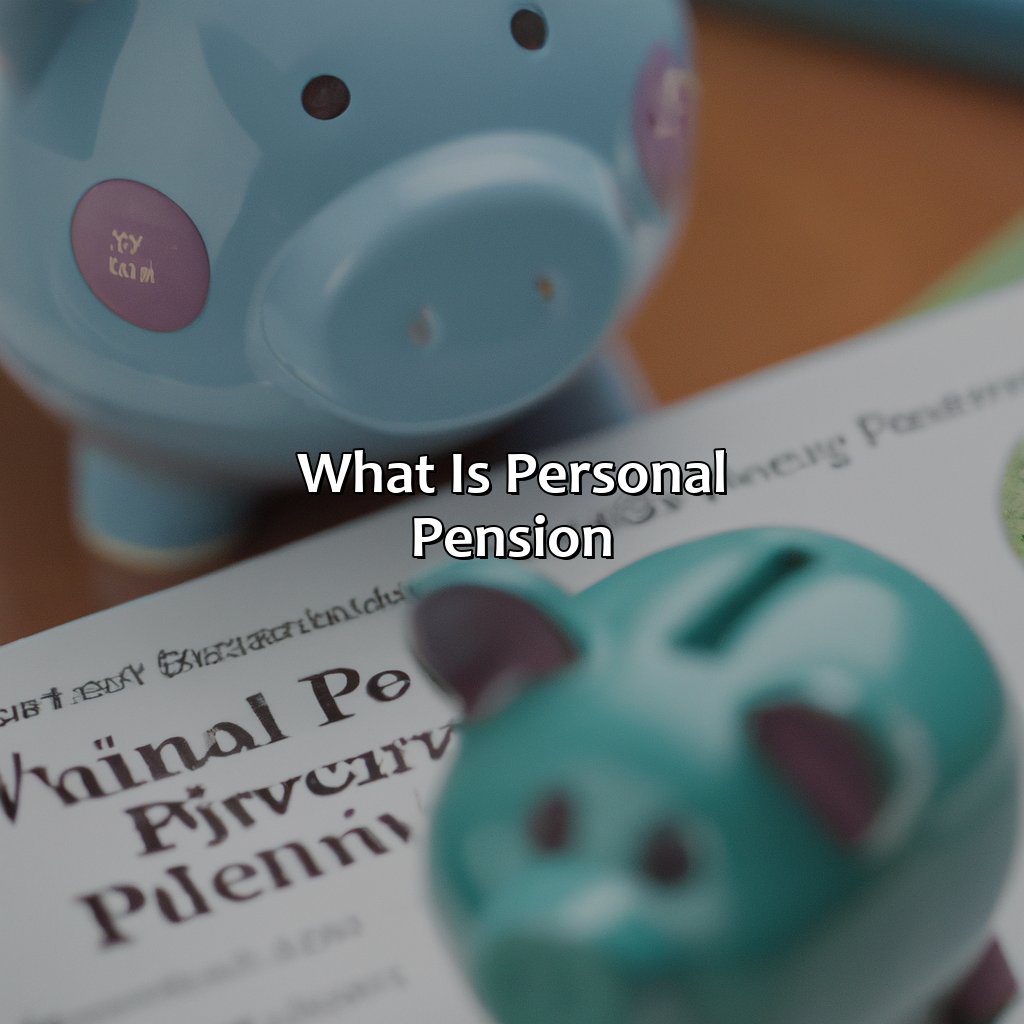What Is Personal Pension?
Key Takeaway:
- A personal pension is a retirement savings plan that an individual sets up on their own. It can be used to supplement other retirement savings, such as an employer-provided pension or Social Security.
- There are two main types of personal pensions: defined contribution and defined benefit. With a defined contribution pension, the amount contributed is invested and the income generated is used to provide retirement benefits. With a defined benefit pension, the individual is promised a specific benefit amount in retirement.
- Personal pensions work by allowing individuals to contribute to their retirement savings on a tax-free basis, investing those contributions in a range of assets, and then providing a regular income stream in retirement. Individuals have flexibility to choose their investment options and retirement options, but the advantages and disadvantages depend on individual circumstances and financial goals.
Are you confused about what a personal pension is and how it can benefit you? Let us demystify it – you can get the best out of your retirement savings with a personal pension.
What is a personal pension?
Personal Pension – Understanding the Retirement Investment Option
Personal pension refers to an individual pension plan created for retirement with a defined contribution. It offers a tax-efficient way to save for retirement. The contributions to the pension fund are usually invested and grow tax-free. Contributions are usually made on regular intervals with the option of making a one-off payment. If you’re interested in a pay as you go pension plan, then check out this resource for more information.
Personal pensions are typically set up by individuals who are self-employed or who do not have access to an employer pension scheme. These pensions offer better flexibility and control over the investments, and the individuals can choose how much they want to invest, when to make the contributions, and how to draw the pension benefits in retirement.
Personal pensions follow a simple investment structure where contributions are invested in a range of funds such as shares, bonds, real estate, and cash. However, there are varying fees and charges associated with personal pensions, like setup fees, annual management fees, and exit charges. If you want to know more about what is a DB pension, you can check out our website.
Personal pensions have evolved significantly over the past decade, and the government has introduced several measures to improve pension provision. The introduction of automatic enrollment has made it easy for individuals to sign up to a workplace pension scheme and start saving for retirement. If you are curious about your own payslip, you may be wondering, what is ERS pension on my payslip? It’s important to understand the details of your pension plan in order to make informed decisions about your retirement savings.
One crucial consideration is engaging a financial advisor who can assist in understanding the investment options and the tax implications associated with personal pensions. Overall, personal pensions offer a fantastic opportunity to save for old age, and everyone is advised to consider them as an option when planning for retirement.
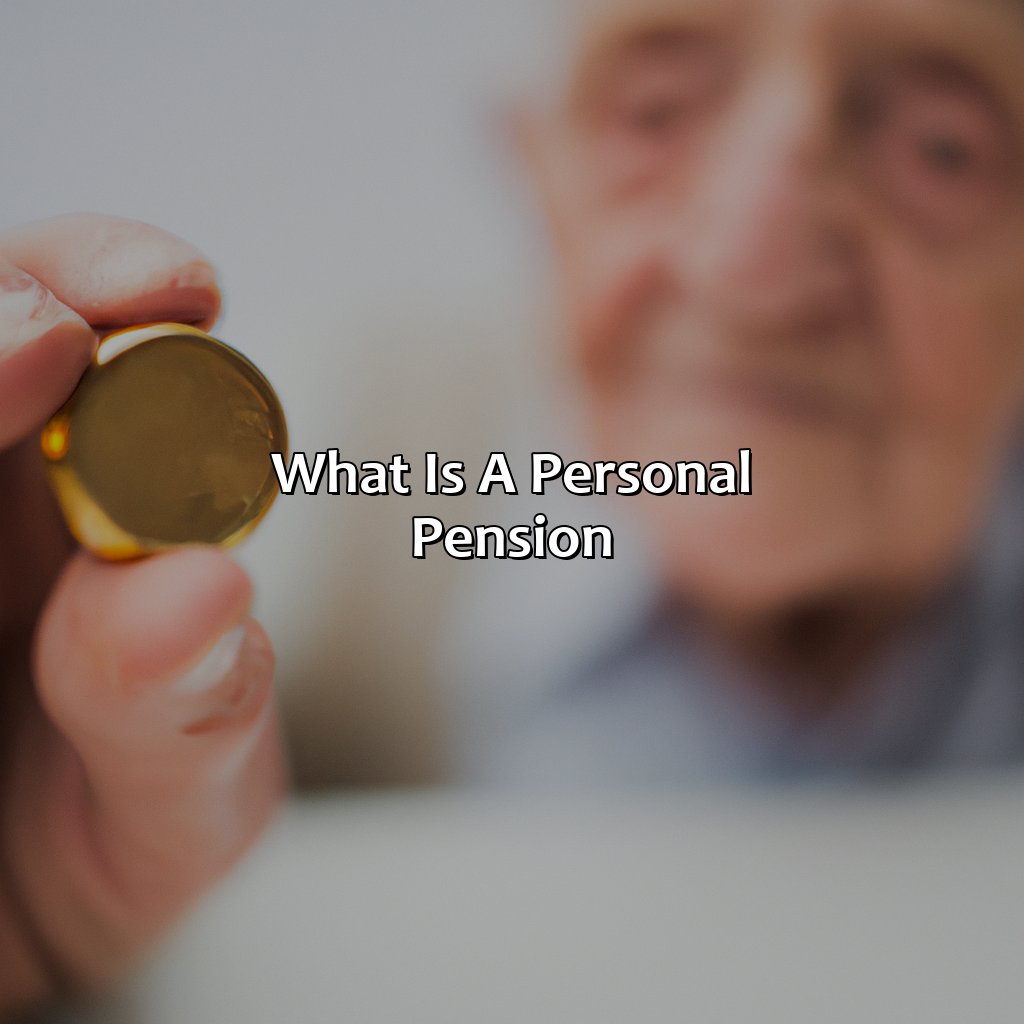
Image credits: retiregenz.com by James Duncun
Types of personal pensions:
Discover the two types of personal pensions: defined contribution pension and defined benefit pension. We’ll explain the advantages and features of each. Learn about the available personal pension choices.
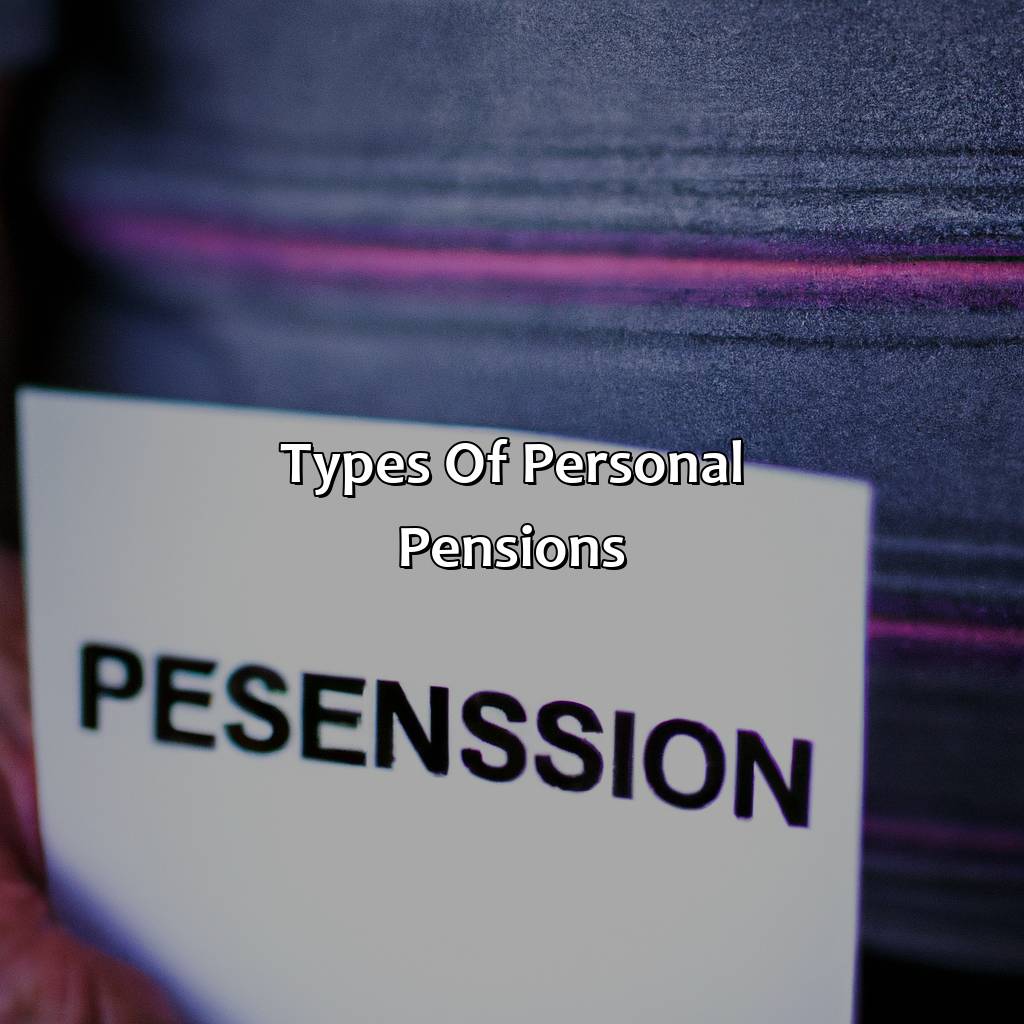
Image credits: retiregenz.com by Joel Duncun
Defined Contribution Pension
Personal pensions in which the size of the retirement fund is dependent on contributions made are called Defined Contribution Pensions. The amount contributed can change according to the individual’s desires, giving them more control over their pension income and investment choices.
The contributions paid into a Defined Contribution Pension are invested in various stocks, bonds, and other financial instruments to maximize returns. As a result, this kind of pension plan has no guarantees at retirement as it wholly depends on how investments grew over time. However, as this is an individual savings vehicle, it is portable, which means that individuals can take their savings with them if they switch employers. To learn more about retirement savings, you can check out this informative article on occupational pensions.
It is essential for individuals with Defined Contribution Pensions to keep track of their investment portfolio and make adjustments when necessary to ensure that they have adequate funds at retirement age.
Pro Tip: Remember to consult with a financial advisor regularly to discuss your investment strategy and ensure that you’re on track to meet your retirement goals.
If you’re lucky enough to have a defined benefit pension, you can retire knowing you won’t have to resort to eating cat food or collecting cans for spare change.
Defined Benefit Pension
A pension plan that guarantees a specific retirement benefit payout to the employee is known as a Defined Benefit plan. This payout amount is pre-determined based on an employee’s salary and years of service. The employer is solely responsible for contributing to the plan, investing these contributions, and managing the risk involved with achieving the guaranteed benefit amount.
One advantage of this type of pension is that it relieves employees from investment risk and ensures a fixed income during retirement. It benefits employees who work for long periods with one employer and have a stable work history. However, funding limitations may limit employer contributions or cause plan underfunding, leading to financial strains or plan terminations. To learn more about EE Pension, visit our website.
It’s crucial to note that employers are obligated to meet their defined benefit obligations even when investments fall short or the retiree lives longer than expected. If you’re wondering about ER pension, it’s essentially a defined benefit pension provided by an employer to their employees.
Starting early with these types of pensions can maximize your potential benefits in retirement years. Additionally, knowing the current status of your plans periodically will avoid any financial surprises while keeping track of benefits you could lose out on by not contributing enough or leaving before vesting or retirement age.
If you are wondering about retirement benefits in the UK, you may want to learn more about what is the UK state pension and how it works.
Why rely on a partner for a retirement plan when you can have a personal pension that never forgets your birthday?
How do personal pensions work?
This part will give you an insight into how personal pensions work. It’ll explain contributions, tax relief, investment choices, and retirement options. You’ll be able to build your pension pot. Also, you’ll be able to make decisions for your retirement. Get ready to comprehend how personal pensions work!
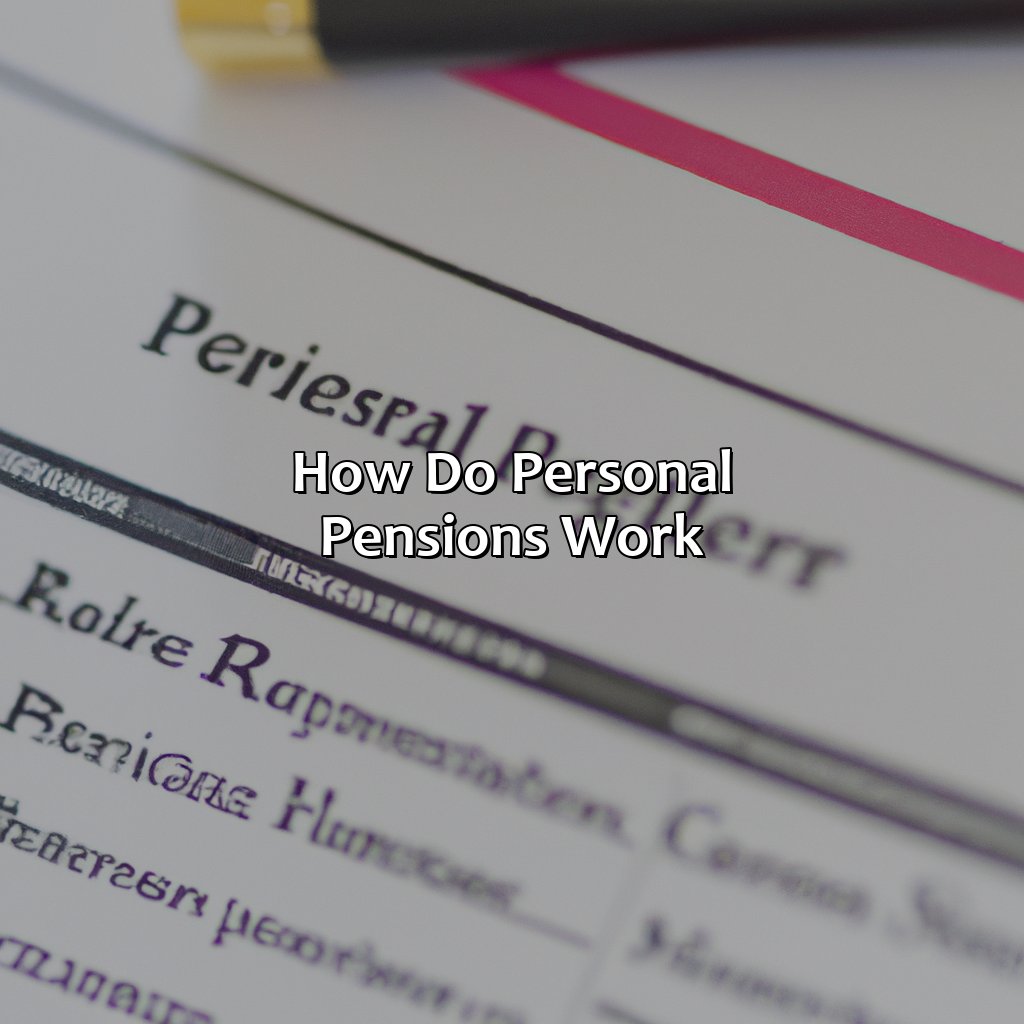
Image credits: retiregenz.com by Adam Arnold
Contributions and tax relief
Personal pension plans allow for contributions from individuals that are eligible for tax relief and can increase retirement savings. Tax relief is provided on contributions, subject to certain limits, reducing the amount of income tax paid by the pension holder. Contributions can be made through regular payments or lump sums, and can be adjusted as needed to meet personal financial situations.
Additionally, employers may offer contribution matching to enhance retirement savings potential. It is important to note that pension holders can access their funds from the age of 55 onwards, although certain penalties may apply if accessed before this time. If you’re curious about what is pension debt, it refers to the amount owed by a pension plan or government to its beneficiaries.
According to Investopedia, personal pensions are also known as S pensions and are considered a defined contribution (DC) plan in the United States.
Choosing an investment option for your personal pension is like picking a candy from a stranger’s van, but with potentially better returns.
Investment options
When considering a personal pension, there are several investment avenues that can be explored. Depending on one’s risk tolerance and financial goals, investors can choose from various options like mutual funds, exchange-traded funds, stocks, bonds, or even a combination of these investment vehicles. Each option comes with its own set of pros and cons in terms of potential returns and risks involved.
Mutual funds or ETFs are a more diversified option as they invest in multiple securities across different industries or markets. Stocks offer the highest potential for growth but come with higher risks of losing money compared to bonds. Bonds provide regular income through interest payments but may not provide significant growth over time.
It is essential to understand each investment option before making any decisions. Seeking professional advice can also help create a well-diversified portfolio catered to individual needs.
Investing in equities may require patience during periods of market volatility; investors who are prone to worrying as emotional decisions regarding selling their investments at losses might leave them regretting their choices later. Therefore, it’s crucial to develop an investment mindset that tolerates risk while also allowing one to stay invested for the long-term for substantial gains and benefits when done correctly – instead of waiting on the sidelines out of fear.
Retirement is just like a game of poker, the key is to have enough chips to keep playing- and a personal pension is the ace up your sleeve.
Retirement options
Retiring comfortably can be achieved through a range of options, each with their own set of considerations. A few possibilities include personal pensions, investments, and annuities. Personal pensions can provide an alternative to company pensions and allow individuals to contribute towards their retirement income through regular payments. These contributions are invested until the time comes to access the pension funds, providing flexibility and potentially higher returns compared to other options.
With a personal pension, there are different types available, such as defined contribution and self-invested ones. Both types offer their own sets of advantages and disadvantages which should be carefully considered before making a choice. Defined contribution pensions offer more predictability while self-invested ones allow for greater control over investment choices.
One unique aspect of personal pensions is that they may provide tax benefits for individuals contributing towards their funds. These benefits are dependent on the specific scheme chosen, but can play a significant role in maximising potential returns.
Are you wondering how a pension is paid out? Learn more about personal pensions and their benefits at Retiregenz.
According to The Guardian, around two-thirds of UK adults do not have any pension savings at all, highlighting the importance of exploring different retirement options earlier in life rather than later.
Advantages and disadvantages of personal pensions
Personal Pension Plans (PPPs) offer both advantages and disadvantages for the investor. These include:
- Flexibility: Unlike other retirement plans, PPPs offer a vast range of flexibility in terms of investment options, contribution amount, as well as retirement age. This allows the investor to better tailor their plan according to their needs and preferences.
- Tax Benefits: PPPs offer many tax benefits to investors such as tax relief on contributions, tax-free growth within the plan, as well as the allowance of a 25% tax-free lump sum on retirement.
- Expenses: PPPs do have various charges or expenses, such as the cost of setting up the plan, management and administrative fees, and investment fees or charges that can potentially affect returns over time.
- Potential Risks: Similar to other forms of investment, PPPs carry potential risks regarding the performance of the investments within the plan. Poor performance can result in disappointing returns over time.
It should be noted that although PPPs provide flexibility and tax benefits, they carry risks and expenses that must be considered. It is advisable to seek professional advice before making any investment decisions.
It is vital to have a clear understanding of all the advantages and disadvantages of PPPs and how they apply to an individual’s specific situation before committing to any investment plan.
Investors are encouraged to conduct thorough research and consult a financial advisor to ensure that they understand all available options and make the best investment decision possible. Don’t miss out on securing your financial future; make informed investment decisions today.
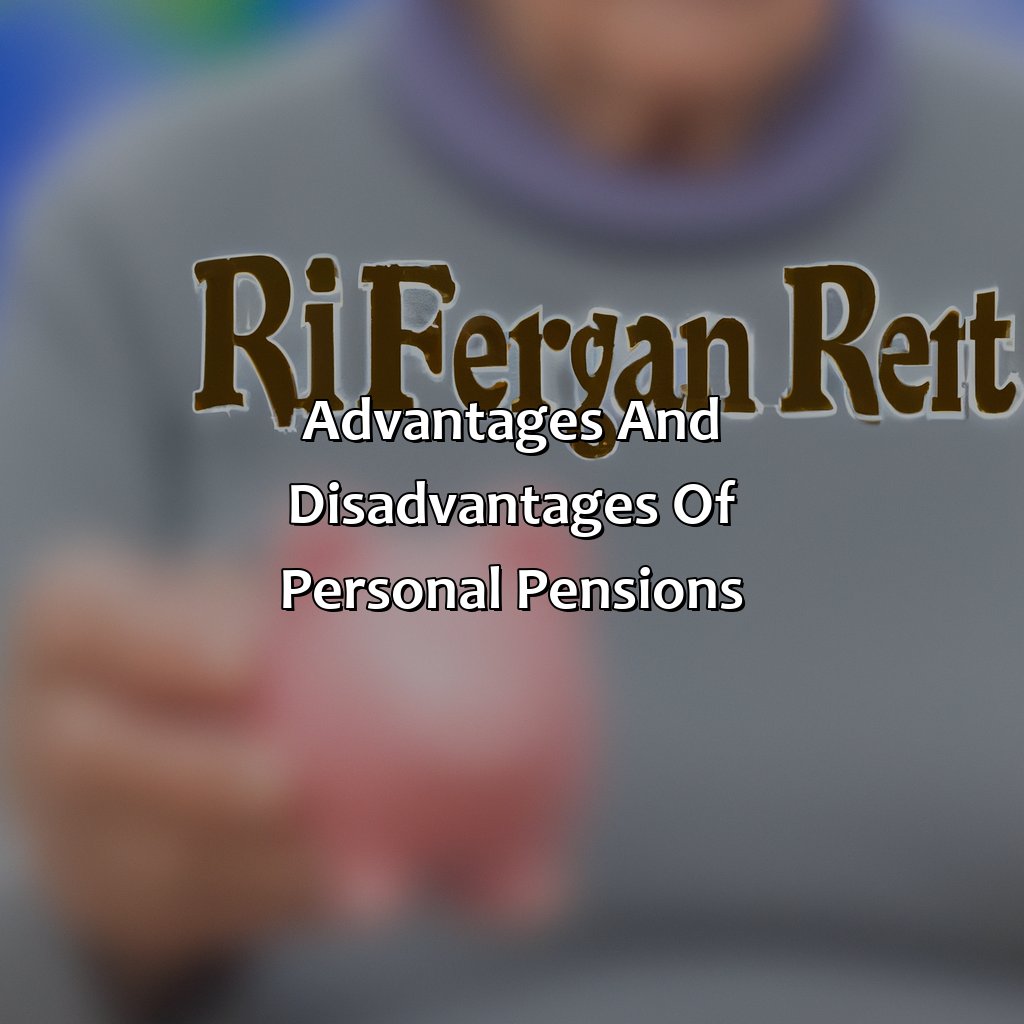
Image credits: retiregenz.com by David Duncun
Five Facts About Personal Pension:
- ✅ A personal pension is a retirement savings plan that you set up yourself and is separate from your workplace pension. (Source: Money Advice Service)
- ✅ With a personal pension, you can choose how much to pay in and where your money is invested. (Source: PensionBee)
- ✅ Personal pensions can be tax-efficient, as you receive tax relief on any contributions you make. (Source: Which?)
- ✅ You can start withdrawing from your personal pension from the age of 55, but the total amount you withdraw will be subject to tax. (Source: GOV.UK)
- ✅ It’s important to review your personal pension regularly to ensure it’s on track to meet your retirement goals. (Source: Money.co.uk)
FAQs about What Is Personal Pension?
What is a personal pension?
A personal pension is a type of retirement savings account that an individual can set up to save money for their retirement. The person contributes money into the account in regular instalments or as lump sums, and the money is then invested to grow the savings over time.
How is a personal pension different from a workplace pension?
A personal pension is separate from a workplace pension, which is a retirement savings plan that is offered by an employer. While a workplace pension is contributed to by both the employee and the employer, a personal pension is funded solely by the individual, and is therefore more flexible in terms of contributions and investment decisions.
Who is eligible for a personal pension?
Anyone can set up a personal pension, regardless of their employment status. However, the tax benefits that are associated with personal pensions may vary depending on a person s earnings and tax status, so it is important to do research or seek advice before setting one up.
What are the tax benefits of having a personal pension?
A personal pension comes with tax benefits as contributions are deducted from an individual s pre-tax income, meaning they pay less income tax. Additionally, there is no capital gains tax on the growth of the investments in the pension fund, and individuals can take up to 25% of their savings as a tax-free lump sum upon retirement.
Can I access my personal pension before retirement age?
Typically, an individual cannot access their personal pension until they reach retirement age, which is currently set at 55 in the UK. In certain situations, such as terminal illness, individuals may be able to withdraw from their pension earlier, but this can have tax implications. It s best to speak with a financial advisor to discuss the options.
What happens to my personal pension when I die?
When an individual with a personal pension dies before they start taking money out of the pension account, the money can be passed on to their beneficiaries tax-free if they die before age 75. If the person dies after age 75, the beneficiaries will need to pay tax on the money they receive. If the person has already started taking money from the pension account, the rules around death benefits may vary depending on the specific pension provider.
